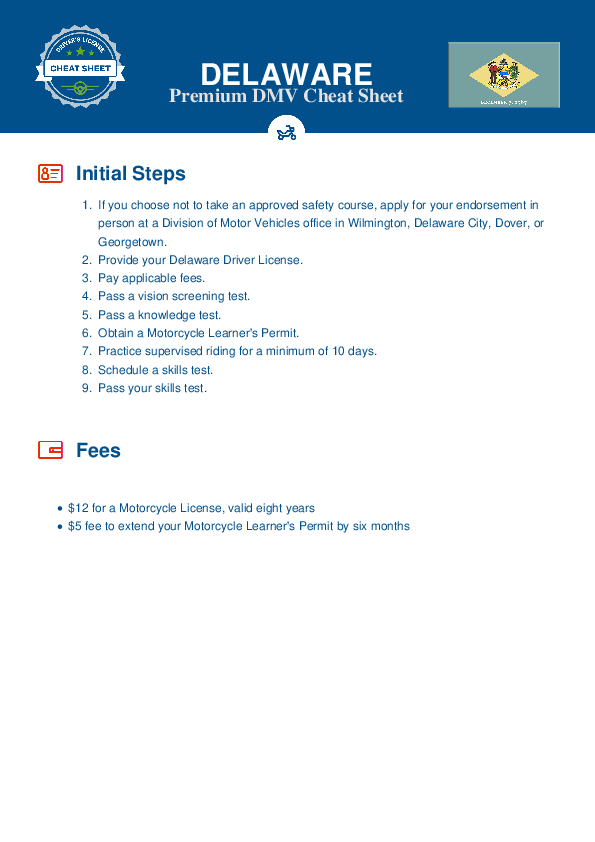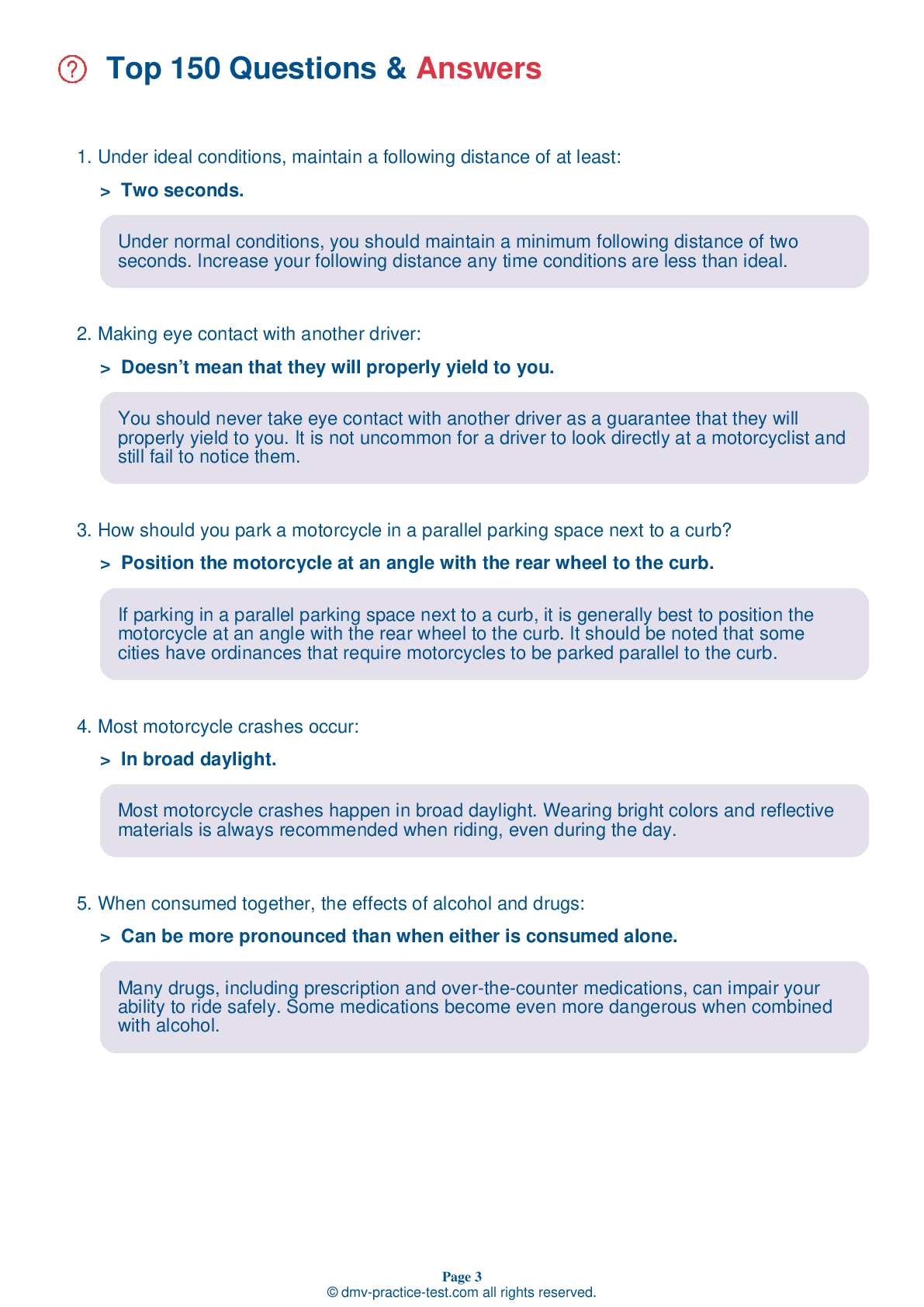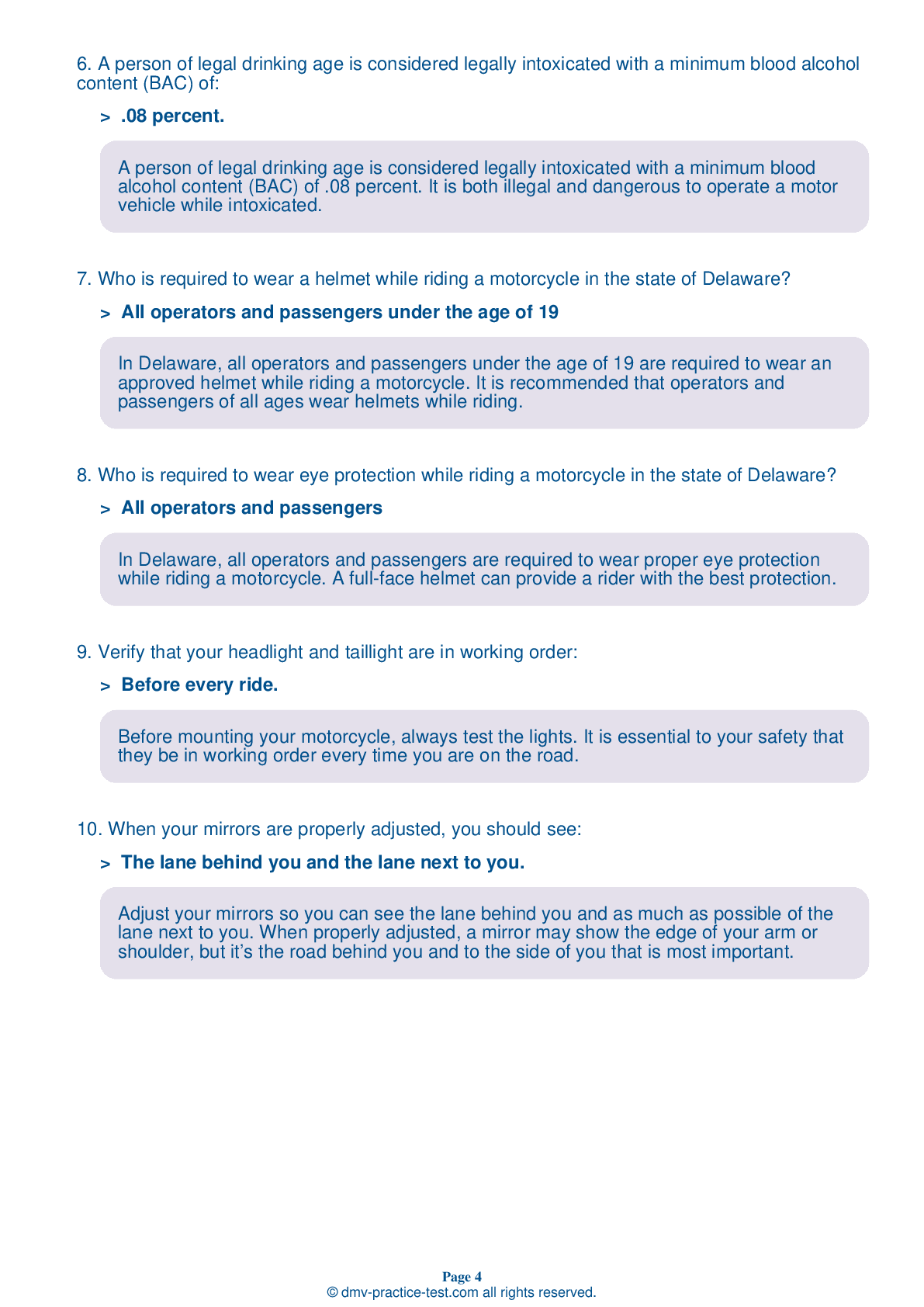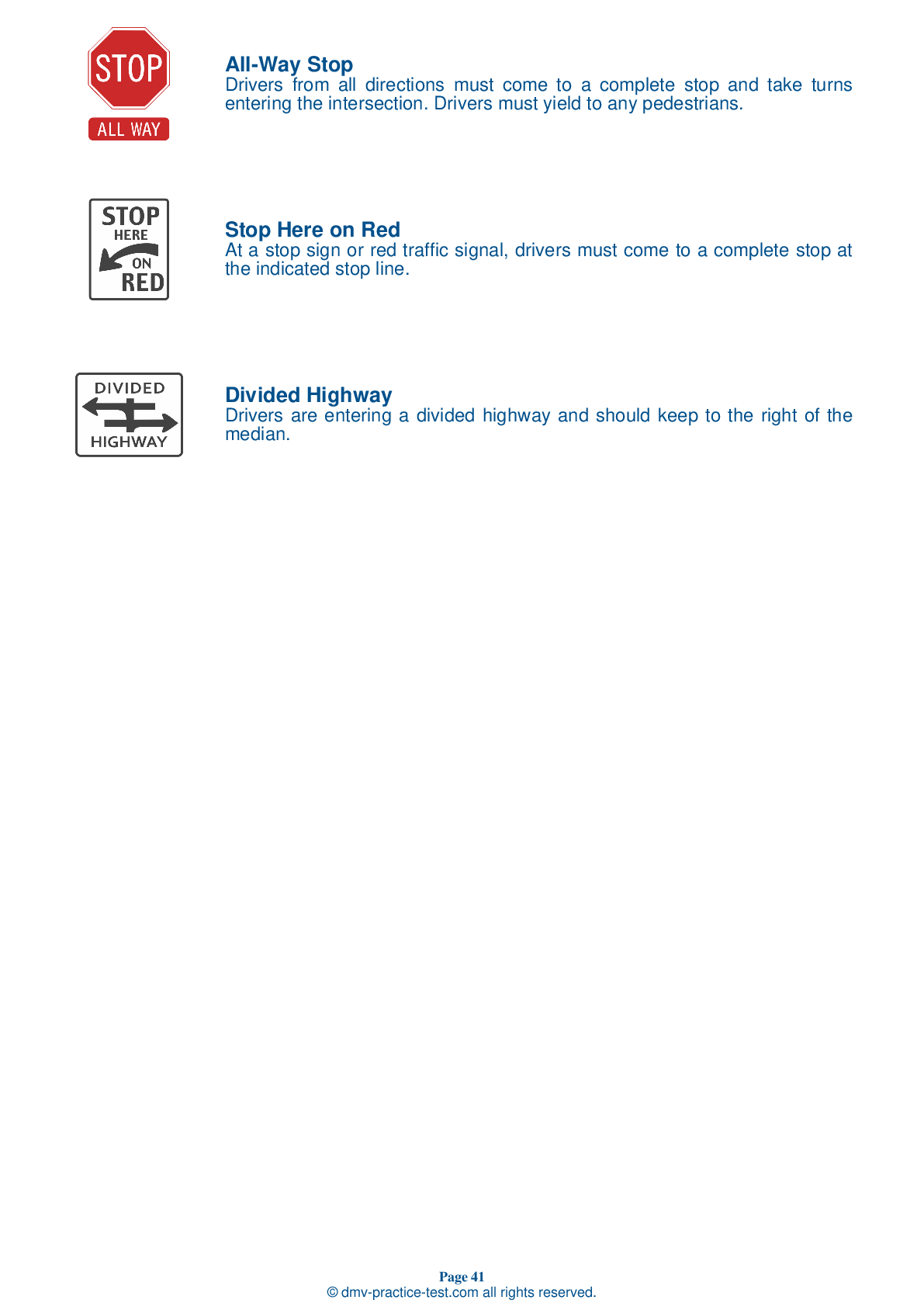Motorcycle Test | License DE 2026 | FREE Online Practice! #5
Take this FREE motorcycle test (license in DE 2026) to check your knowledge of the road rules. To improve your results, download a motorcycle handbook online, study theory, and practice for free on our website. Still worried about how to get a motorcycle license in Delaware in 2026? Check our website for more sample tests, train as much as possible, and boost your grades!
1 . To safely cross railroad tracks that run parallel to your lane, you should:
To safely cross railroad tracks, trolley tracks, or pavement seams running parallel to your lane, move to a lane position that will allow you to cross them at an angle of at least 45 degrees. Then, make a quick, sharp turn. If you try to edge across, the tracks or seam could catch your tires and throw you off balance.
2 . When braking on a motorcycle:
Use both brakes every time you slow down or stop. If you use only the rear brake when stopping normally, you may not develop the habit or the skill to use the front brake properly when you really need to stop quickly.
3 . While braking a motorcycle with a sidecar, you may need to:
A sidecar adds additional weight to one side of your motorcycle. You may need to steer slightly in the direction of the sidecar when applying your motorcycle's brakes if the sidecar is not also equipped with brakes.
4 . The risk of a head or neck injury is reduced:
A head or neck injury is always a risk when riding a motorcycle, regardless of your speed of travel. With few exceptions, the risk of head and neck injuries is greatly reduced by properly wearing a quality helmet.
5 . Making eye contact with another driver:
You should never take eye contact with another driver as a guarantee that they will properly yield to you. It is not uncommon for a driver to look directly at a motorcyclist and still fail to notice them.
6 . The first thing you should do if your throttle becomes stuck is:
If your throttle becomes stuck, try twisting it back and forth several times. If this does not free your throttle, immediately operate the engine cut-off switch and pull in the clutch at the same time.
See the exact questions that will be on the 2026 Delaware DMV exam.
99.2% of people who use the cheat sheet pass the FIRST TIME
Jeneen was tired of paying $5/gallon. She got herself a scooter that required the motorcycle license. She studyed the motorcycle test cheat sheet and passed her test the next day!
Christopher tells us how he knew nothing prior to obtaining the motorcycle study guide, and he only got one question wrong because he clicked on the wrong answer by mistake.



